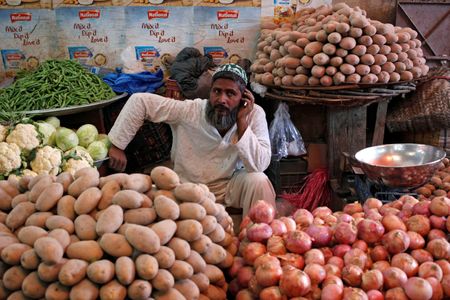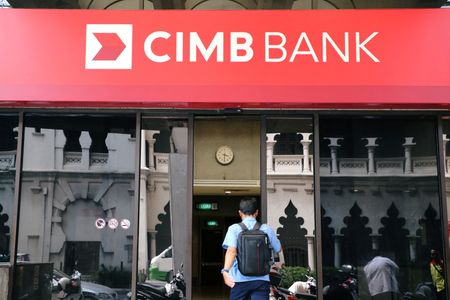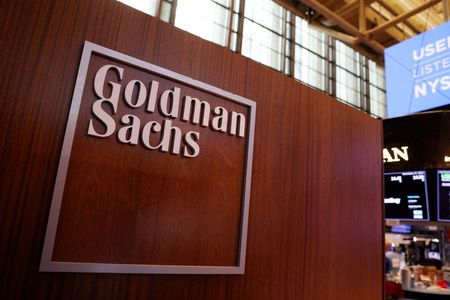By Ariba Shahid
KARACHI (Reuters) – Pakistan’s consumer inflation rate fell to its lowest in more than nine years, dropping to 2.4% year-on-year in January, the statistics bureau said on Monday.
Inflation has cooled significantly, easing from 28.3% in January 2024.
Consumer prices in January rose 0.2% from the month before, according to the Pakistan Bureau of Statistics.
The South Asian country, currently bolstered by a $7 billion facility from the International Monetary Fund (IMF) granted in September, is navigating an economic recovery. The IMF is set to review Pakistan’s progress by March, with the government and central bank expressing confidence about meeting its targets.
“Inflation is lower because of the statistical base effect, also supported by currency stability and lower food and energy prices,” said Adnan Sami Sheikh, assistant vice president of research at Pakistan Kuwait Investment Company.
Pakistan’s central bank cut its benchmark interest rate by 100 basis points to 12% last week, as inflation eases and growth looks set to pick up after 1,000 basis points of rate cuts over the last six months.
The State Bank of Pakistan has slashed rates from an all-time high of 22% last June, one of the most aggressive moves among central banks in emerging markets and exceeding its 625 bps of rate cuts in 2020 during the COVID-19 pandemic.
Pakistan’s consumer inflation rate fell to 4.1% in December, its lowest in more than six years, helped by favourable base effects. That was below the government’s forecast and down from a multi-decade high of around 40% in May 2023.
After the policy rate decision, central bank Governor Jameel Ahmad told a press conference that inflation would ease further in January but noted core inflation remained elevated.
He forecast full-year inflation in the year to June would average 5.5%-7.5%.
(Reporting by Ariba Shahid in Karachi; Editing by Jacqueline Wong)









